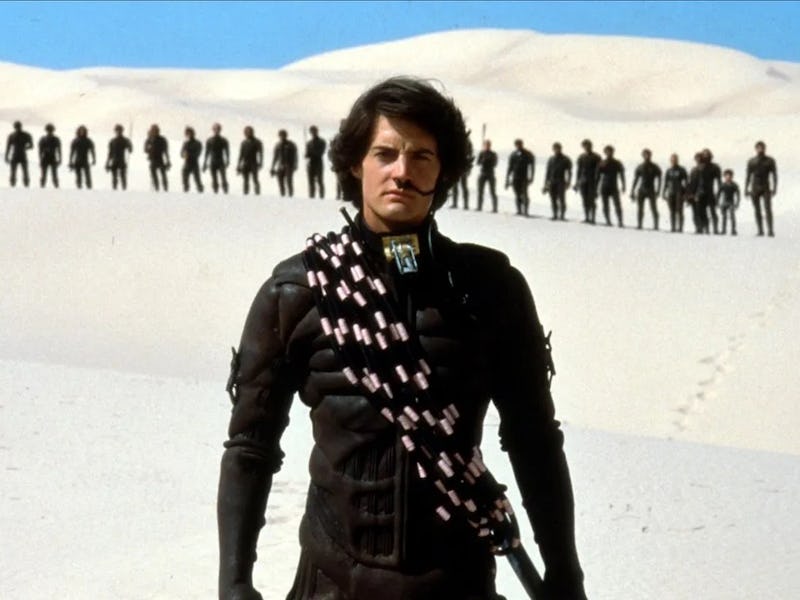Dune is “Impossible” to Adapt in Just One Movie, Kyle MacLachlan Says
Dune: Part Two can “tell a little more of the story without having to feel like you have to rush through.”

Ask any Dune fan whether there’s been a perfect adaptation of Frank Herbert’s seminal sci-fi novel, and you’ll get many different answers. Some might say Denis Villeneuve’s Dune movies are the closest to a Platonic ideal. The nerds might say it’s the Sci Fi Channel’s three-part miniseries, Frank Herbert’s Dune. Bigger nerds will say perfection exists only in Alejandro Jodorowsky’s deranged imagination, while the biggest nerds will argue that there’s no way to accurately adapt Dune at all. Only the real freaks, however, will speak up for David Lynch’s notorious 1984 flop.
Lynch’s Dune holds a fascinating place in pop culture history, releasing to such poor reviews and abysmal box office returns that the director famously disowned the film. It’s attained a kind of cult following in the decades since, with some fans proclaiming it to be a misunderstood masterpiece. But even star Kyle MacLachlan, who played the tragic hero Paul Atreides, acknowledges that Lynch’s Dune had an “impossible” task it couldn’t quite pull off.
“In our original one, it was one movie. We were trying to do everything in just one film, which was impossible,” MacLachlan tells Inverse ahead of the release of Amazon Prime’s Fallout, in which he stars.
David Lynch directing Dean Stockwell and Francesca Anna on the set of Dune (1984).
Lynch’s Dune adapts the entirety of Herbert’s 1965 novel, while also drawing in elements from future books, which is a lot to contain in its 137-minute runtime. The story spans years, from the fall of House Atreides to Paul’s ascension to Fremen messiah, while also making time to dive into the weird minutiae of drugged up space navigators and prescient talking toddlers.
It’s a wild, visually striking ride at best, overstuffed and confusing at worst. As MacLachlan says, its biggest problem was that it was just one movie. That’s why he’s supportive of Villeneuve splitting Dune into two films. “I love the idea that they're able to stretch it out a little bit and tell a little more of the story without having to feel like you have to rush through,” MacLachlan says.
Though MacLachlan hasn’t seen Part Two yet, he tells Inverse he “really enjoyed the first one” and is “curious about the journey” of the second. “I am looking forward to the journey that Timothée [Chalamet]'s character Paul goes through as he ascends into this tribal relationship and becomes the leader of this group, and what kind of conflicts within him we're going to be able to see,” MacLachlan says.
Timothée Chalamet’s Paul and Zendaya’s Chani get to have a stronger dynamic in Villeneuve’s Dune thanks to the two-part movie split.
Splitting the film into two parts allowed Villeneuve and company to explore those conflicts more deeply, touching on Herbert’s warning against messiah figures in a way Lynch’s movie simply didn’t have time for, while also expanding the roles of characters like Chani and Jessica. But does MacLachlan have any regrets for the missed opportunities in Lynch’s Dune?
“Oh gosh, no,” he says. “I mean, there were scenes that did not happen because of the time limitations on our film. But I think I did everything pretty much that I wanted to do.”